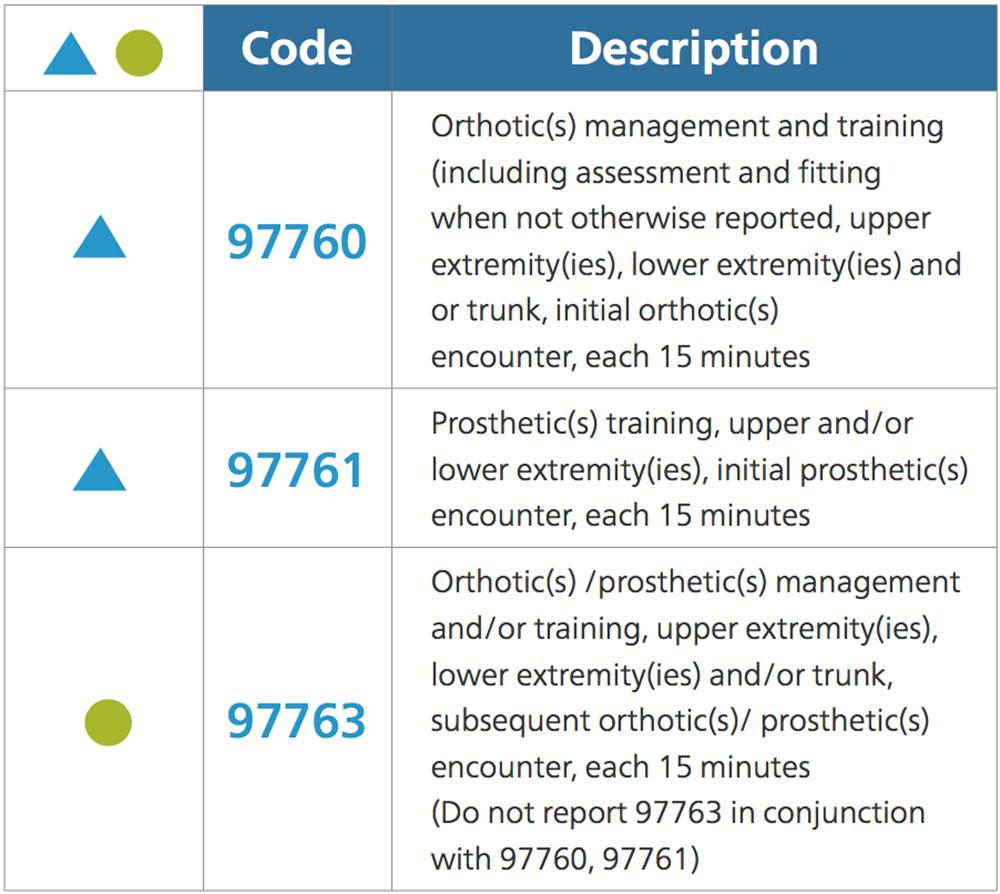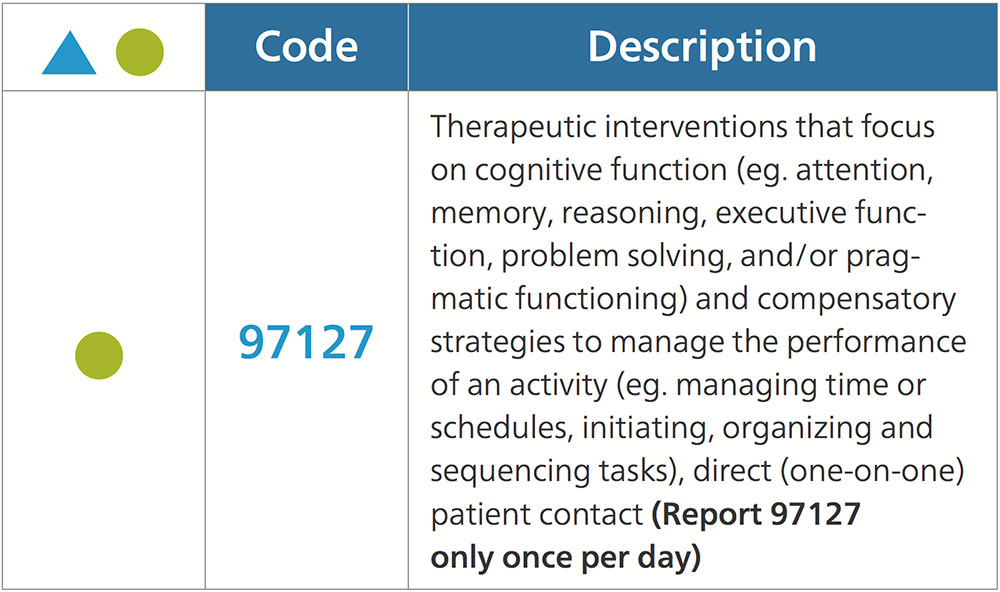A new year means new Current Procedural Terminology (CPT) code changes! There are a total of 314 code changes in the 2018 code set, and with 2018 just around the corner, it’s time to start thinking about how these changes will impact the casualty industry. After an intensive review of the new CPT code book,1 we’ve identified a few items that may be of interest to your business and could impact the casualty industry in the coming year. Keep these in mind as you review the new CPT code book:
- Revised description to Surface Neurostimulator CPT code 64550
- New addition of the Proprietary Laboratory Analysis (PLA) codes
- Changes to codes related to Orthotic and Prosthetic Management and Training
- Removal of Development of Cognitive Skills CPT code 97532
The jury is still out on how the inclusion of these codes will affect reimbursement.
Revision to CPT® Code 64550 A new parenthetical note has been added to the guidelines for code 64450:
The inclusion of this example may not seem like much at first glance, but it could lead to some confusion in practice. From a coding perspective, it is important to know that though transcutaneous electrical nerve stimulation (TENS) is provided as an example, the intent of this code does not include the actual modality or performance of nerve stimulation. Electrical nerve stimulation is appropriately reported with either of the following modality codes:
The American Medical Association (AMA) describes code 64550 as a service “in which electrodes are placed on the skin by the physician, and the patient takes the unit home.”2 Electrical stimulation is done at home, with the patient operating the unit.
New Proprietary Laboratory Analysis (PLA) Codes
One of the biggest additions to the 2018 book is an entirely new section called for the Proprietary Laboratory Analysis (PLA) codes. In June 2016, under the umbrella of the Protecting Access to Medicare Act (2014), the Centers for Medicare & Medicaid Services (CMS) released the Medicare Clinical Diagnostic Laboratory Tests Payment System Final Rule.3 This rule requires Healthcare Common Procedure Coding System (HCPCS) codes to identify new advanced diagnostic laboratory tests (ADLTs) and clinical diagnostic tests (CDLTs) that are cleared or approved by the FDA if an applicable CPT (HCPCS Level I) code does not exist.4
The jury is still out on how the inclusion of these codes will affect reimbursement.
Shortly thereafter, in response to these coding requirements, the AMA CPT Editorial Panel approved and finalized the new PLA section. These codes were introduced with the CPT 2017 code set. However, there was no dedicated section in the code book at that time. Instead, the AMA released quarterly updates to the PLA list of codes throughout 2017. The quarterly release of new codes will continue through 2018 as they are approved by the AMA CPT Proprietary Laboratory Analyses Technical Advisory Group (PLA-TAG).5 The jury is still out on how the inclusion of these codes will affect reimbursement. Though CMS is expected to release pricing for diagnostic tests as they usually do, the degree to which insurers will allow reimbursement for these rapidly issued codes remains to be seen. It’s possible that it may be easier to process claims for these tests, especially for those tests that already have a Medicare coverage determination. However, it could also allow for abuse. For example, if the codes show up in the Medicare fee schedule, some payors may default to automatic reimbursement which is not always appropriate.6 At this point, it is anybody’s guess as to how (and the extent to which) these codes will be reimbursed. Time will tell.
Pertinent Changes in Orthotic and Prosthetic Management and Training
CPT® code 97762 has been deleted and replaced with the new code, 97763.
The new format for these codes aligns with the AMA’s movement-toward more specificity. Similar to last year’s physical therapy and occupational therapy evaluation codes, these codes have the “look and feel” of evaluation and management codes since these visits can be reported as initial versus subsequent visits. Because the new subsequent visit code, 97763, is reported for either orthotic or prosthetic management, it is considered mutually exclusive to both 97760 and/or 97761, hence the parenthetical guideline.
Removal of Development of Cognitive Skills CPT code 97532
CPT code 97532 has been deleted: Users are now instructed to report CPT code 97127
The previous code, 97532, was a time-based code, reported in increments of 15 minutes. In contrast, the new code, 97127 is now reported only once per day—meaning that even if the therapeutic interventions or strategies are provided during separate encounters during the day, this code is still reported no more than once per day. Since the new code is not time-based, from a coding perspective that means that a one-to-one crosswalk between deleted code 97532 and the new code 97127 is inappropriate. A complete listing of code additions, deletions and revisions is available in the AMA CPT 2018 code book under Appendix B.







